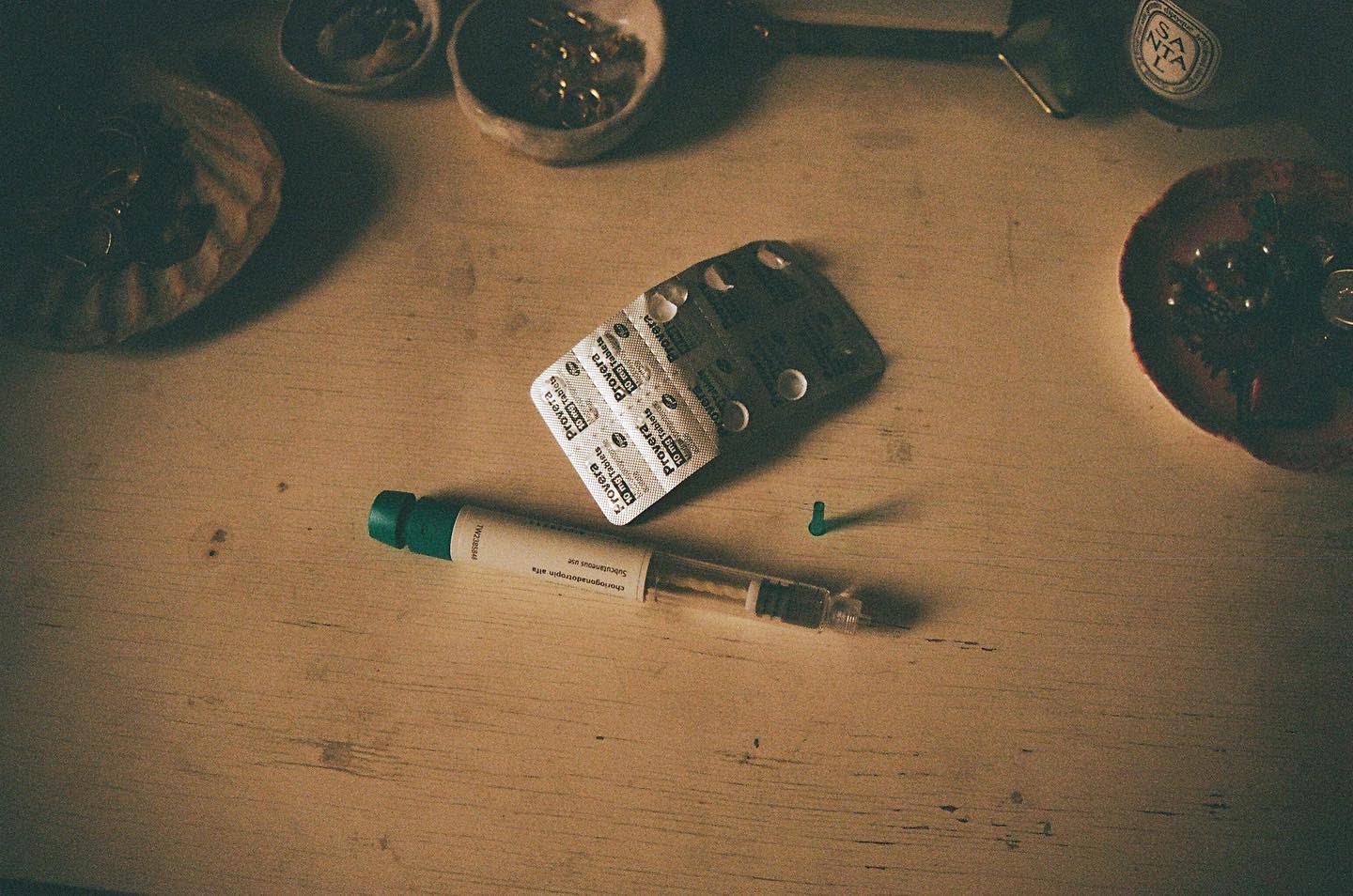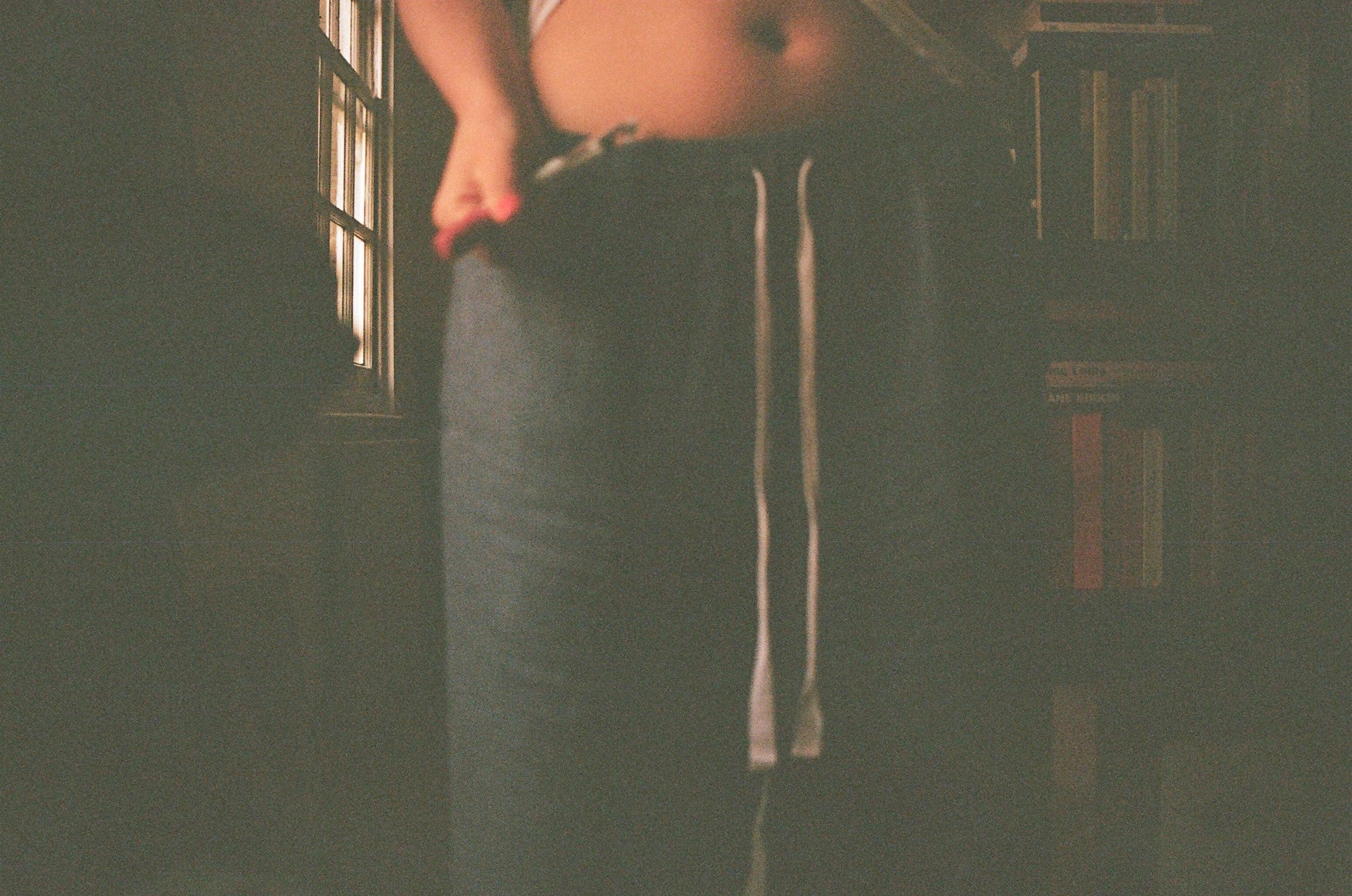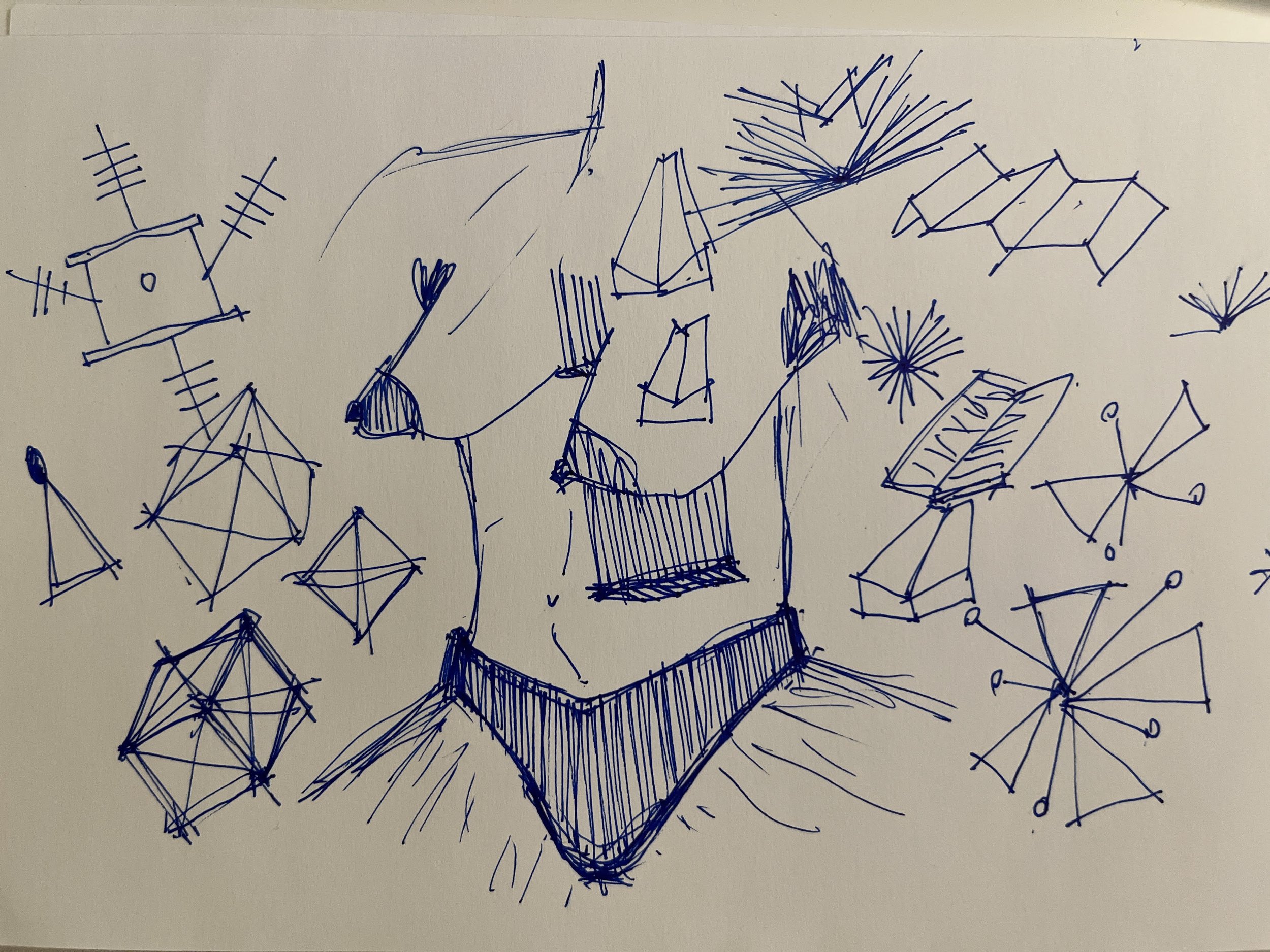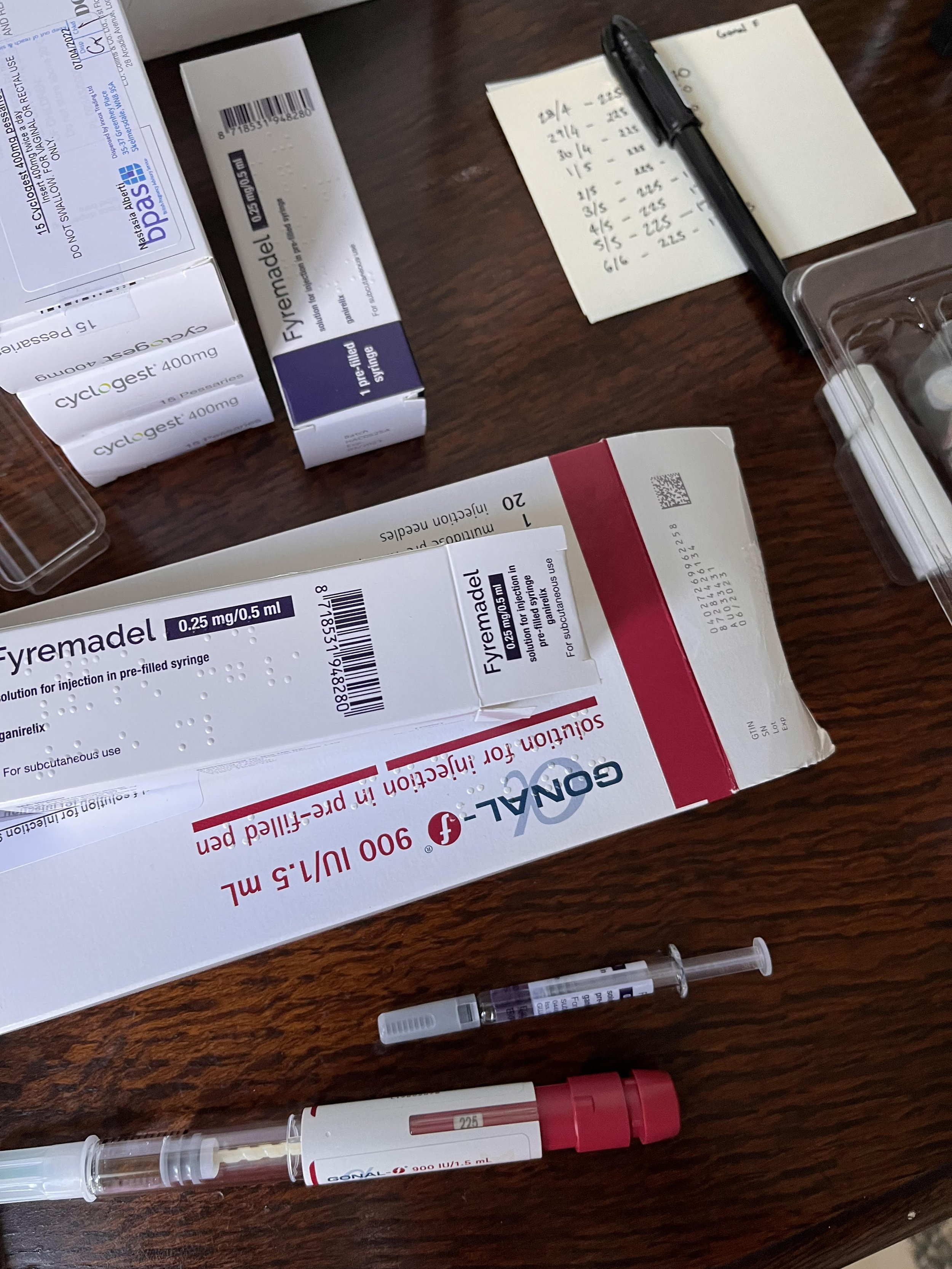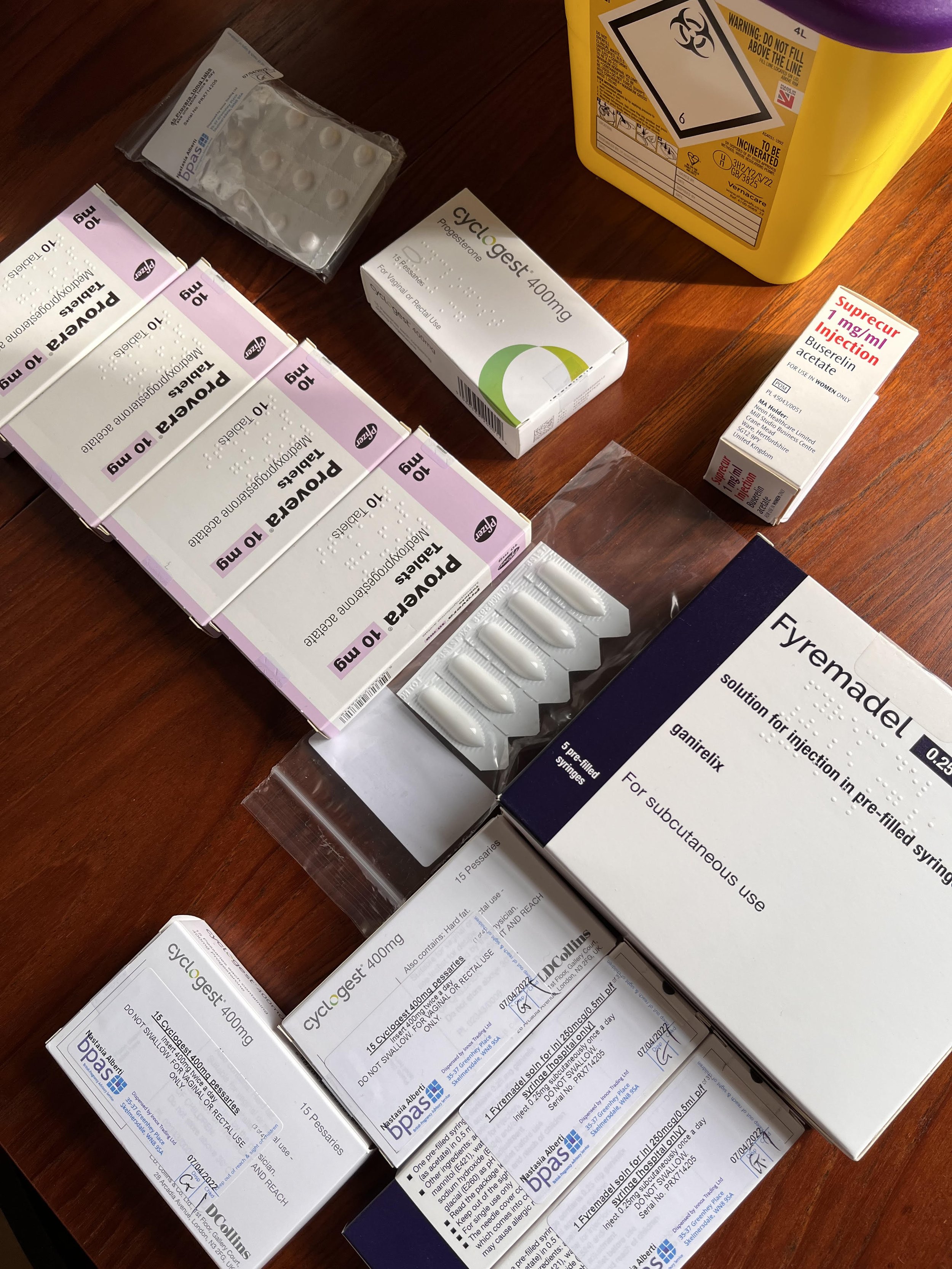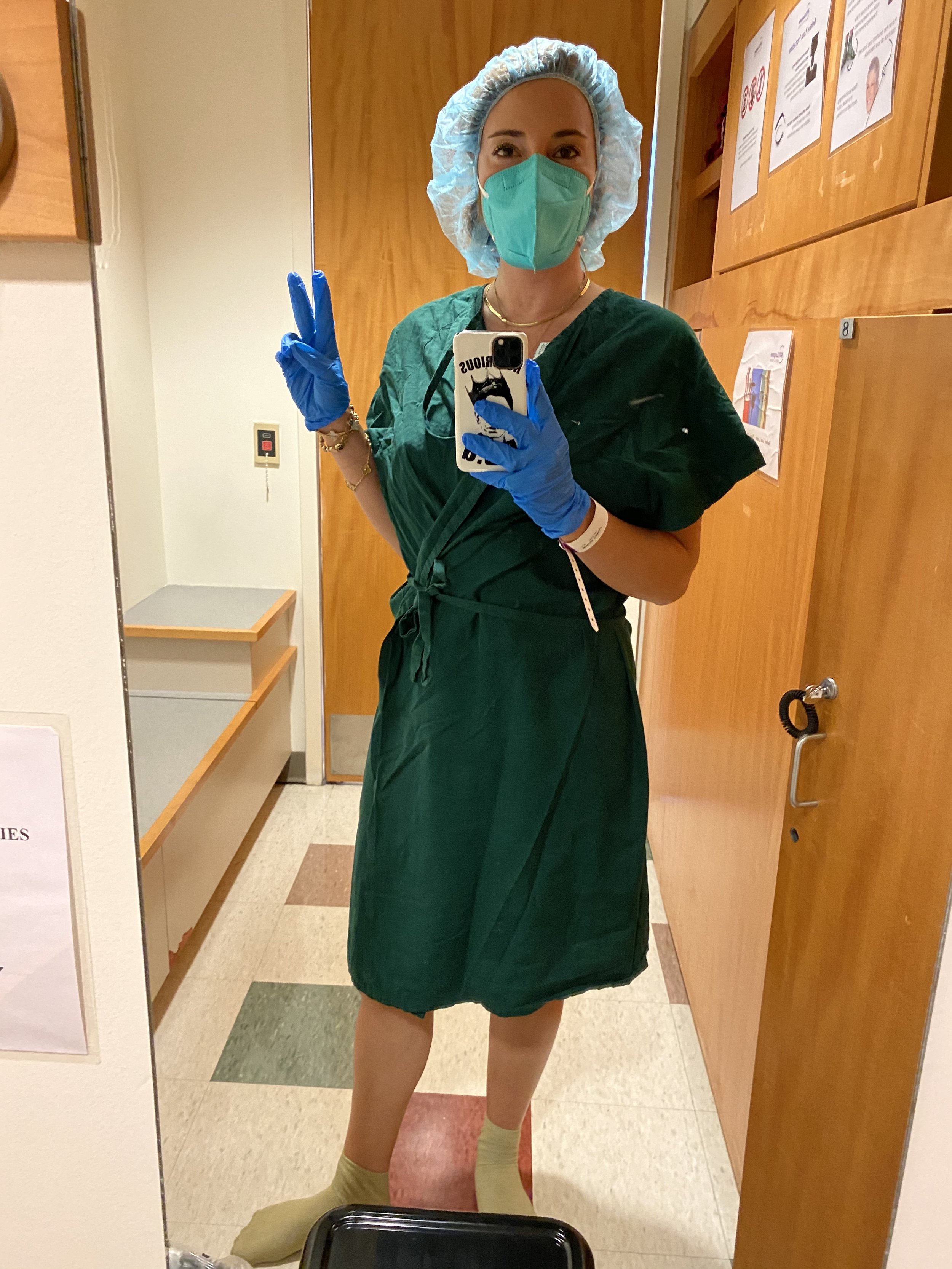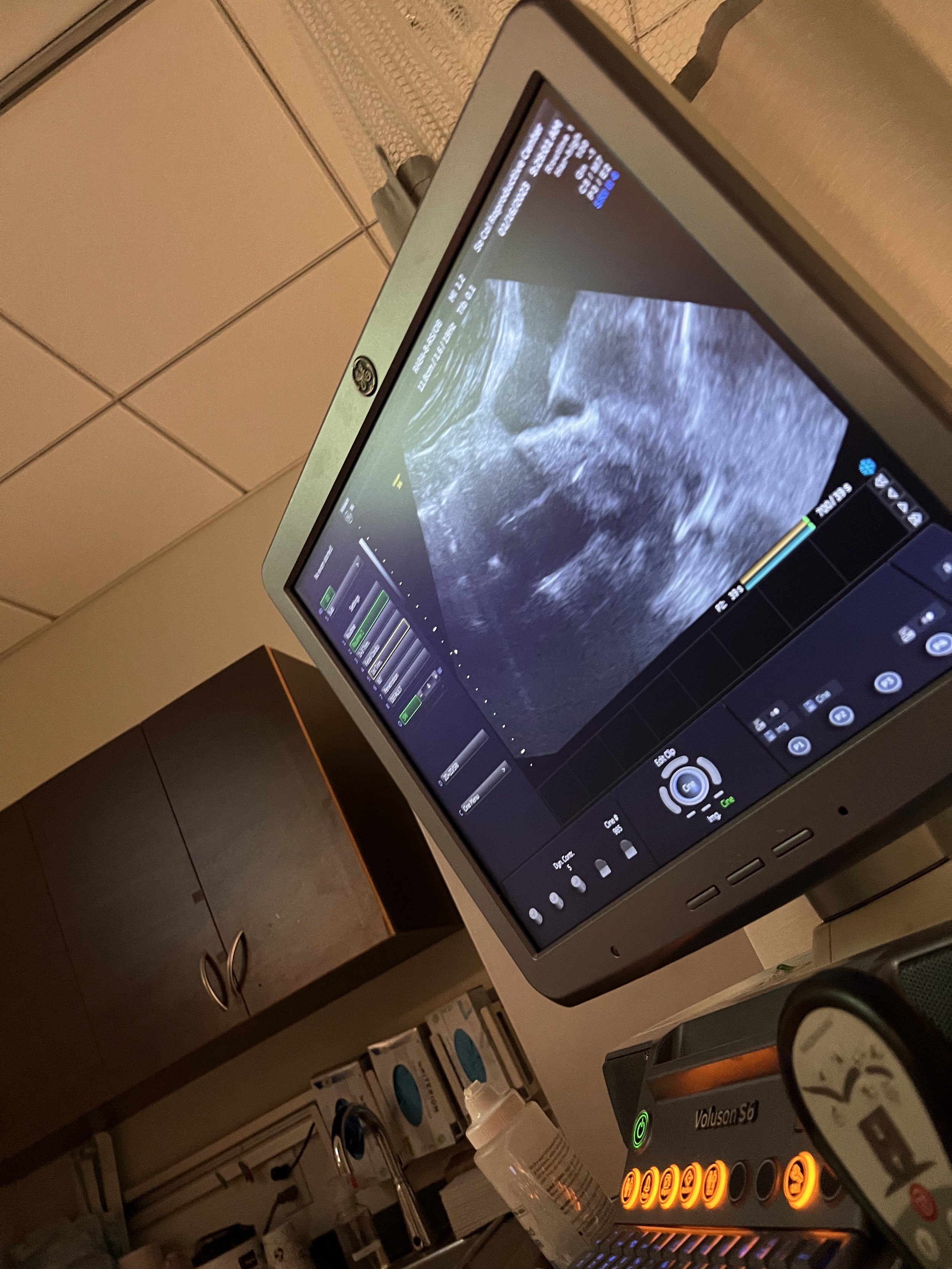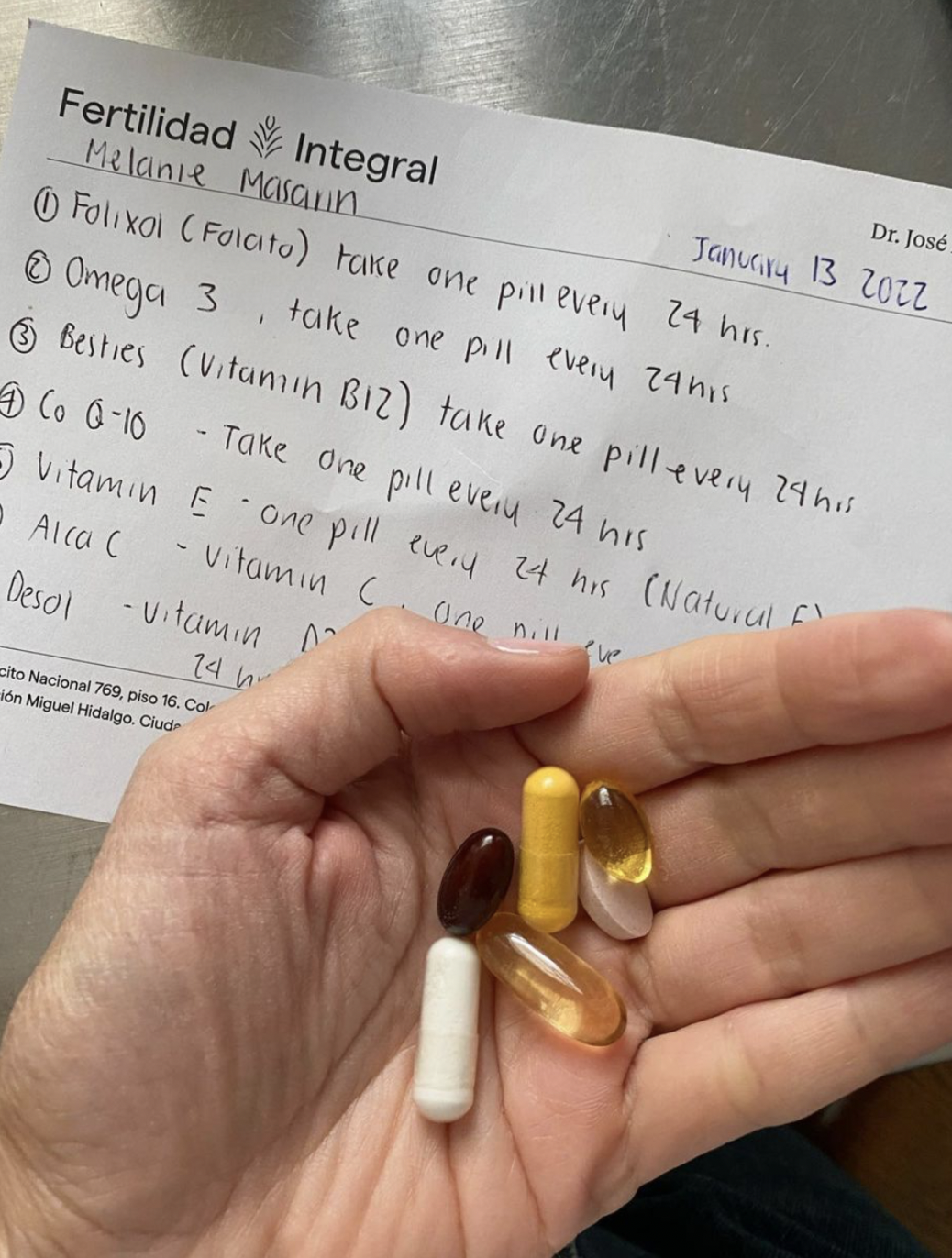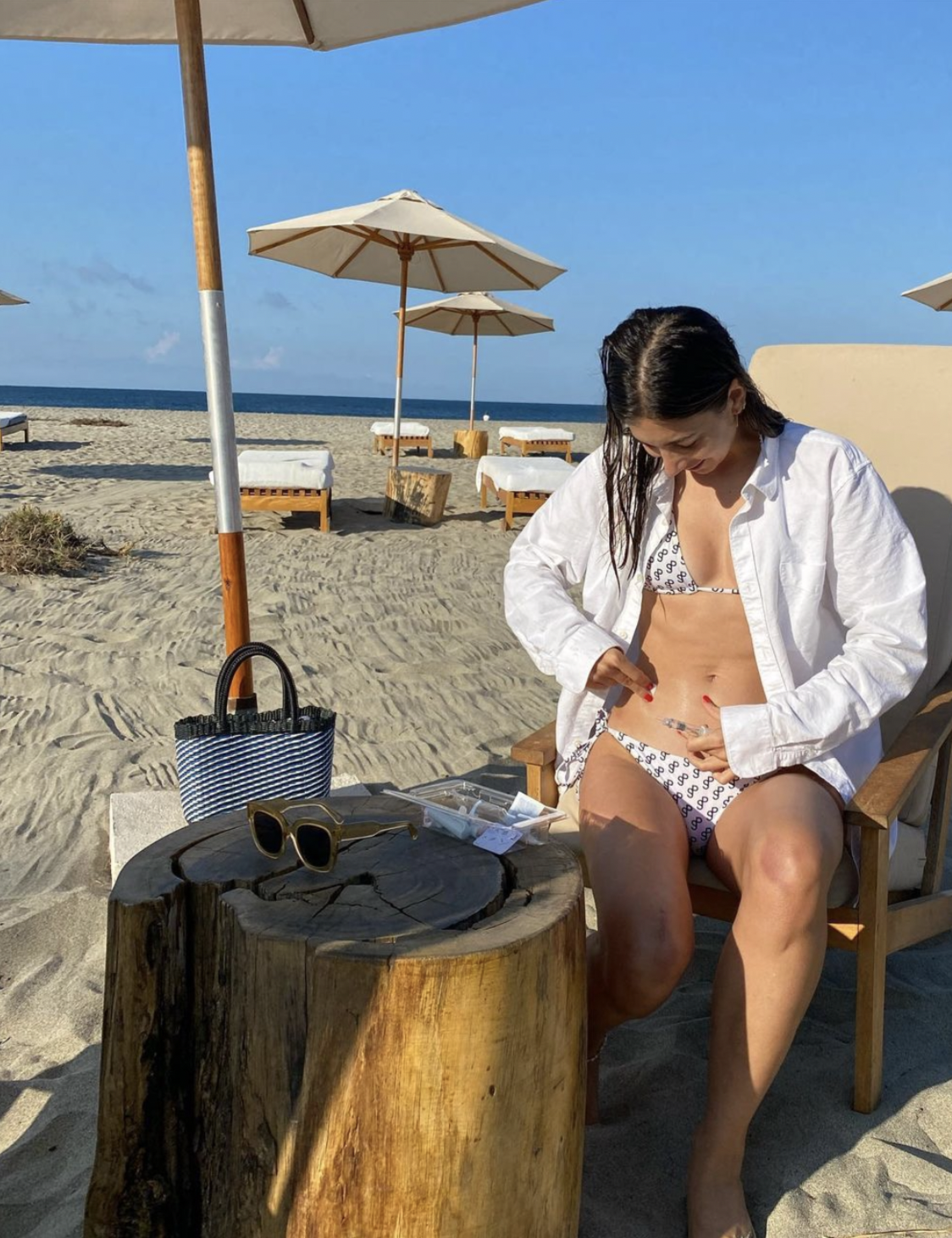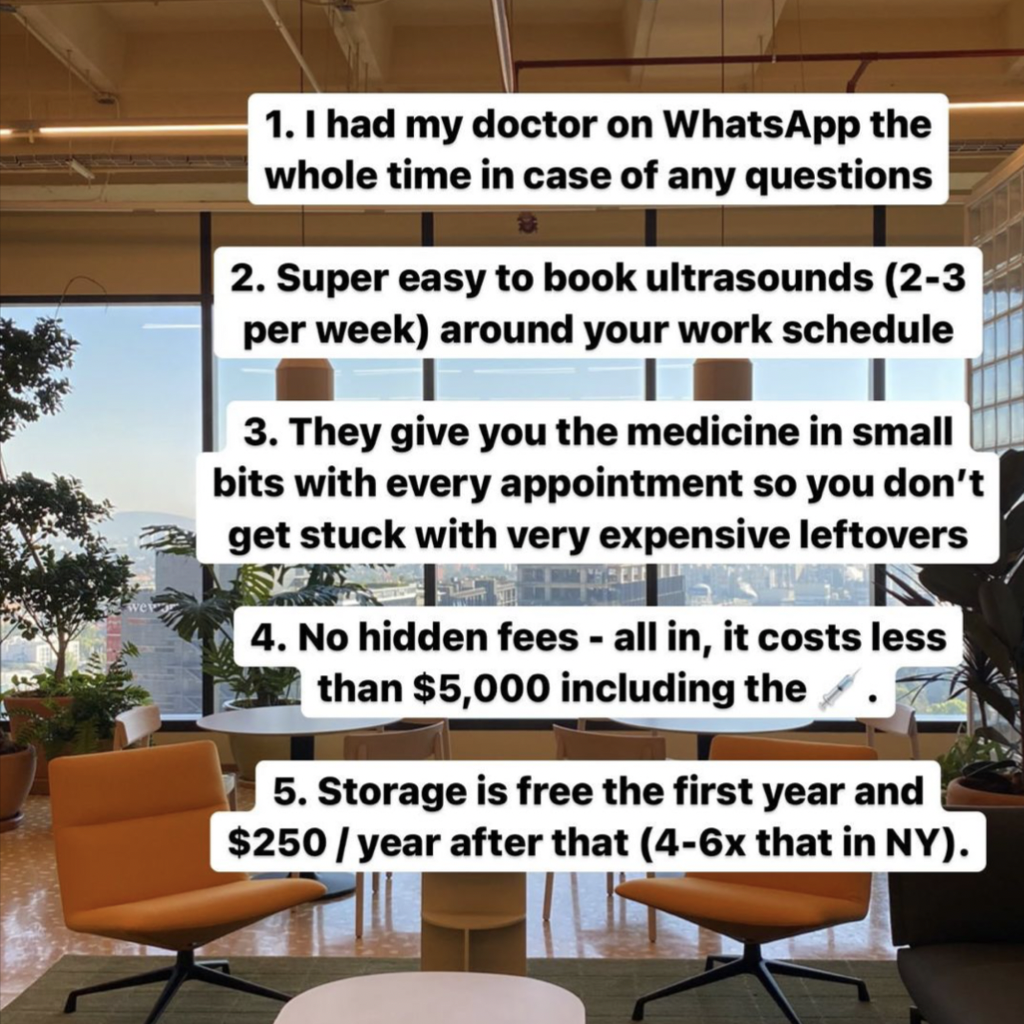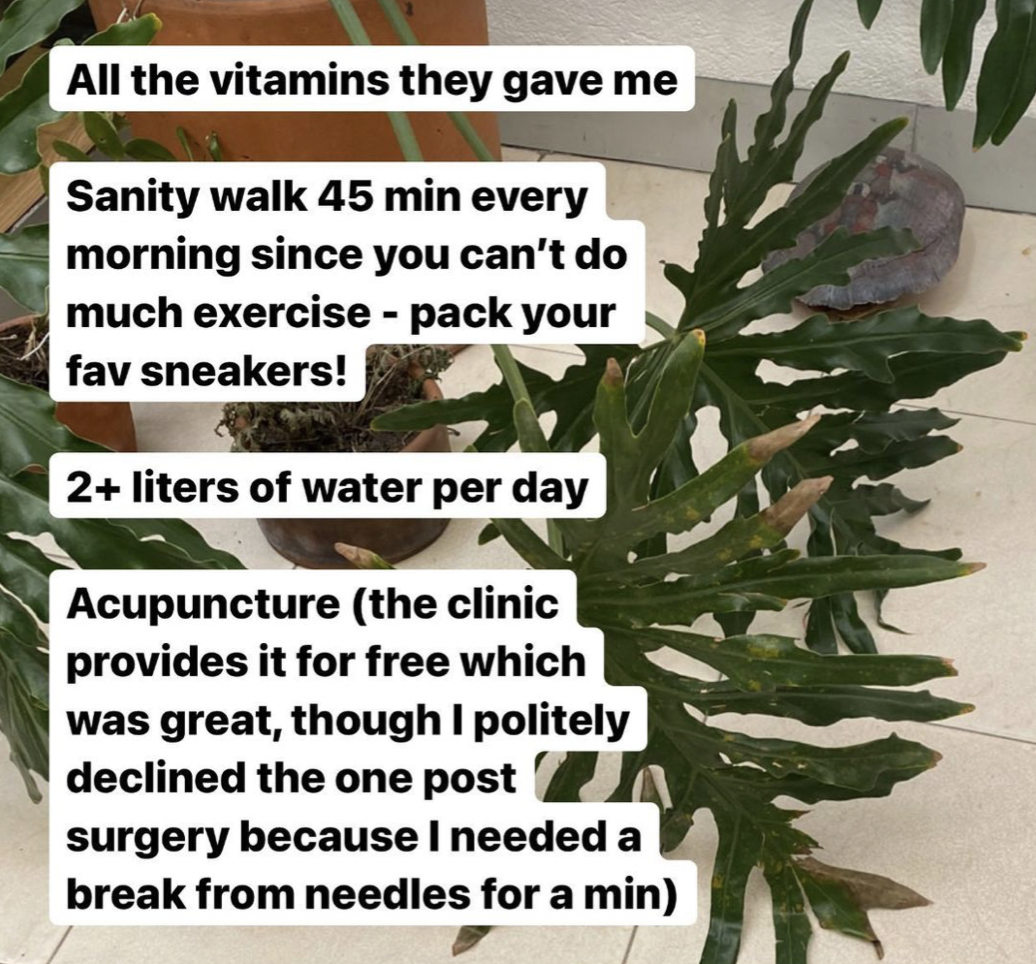“personal fertility stories from women on all sides of the journey.”
Whether someone is planning for their future or ready to conceive immediately, the fertility journey can be a confusing and daunting experience. Women in their 30s often hear that their “biological clock is ticking” as egg reserve and quality begin to decline and are put under an immense amount of pressure no matter what stage of life they are in. Luckily, medical advancement has provided more options for those planning ahead or struggling with fertility. The passerby community includes women on all sides of the journey — from those who have moved on to motherhood to others still waiting their turn. While they each have their own unique circumstances and stories, all share the notion of openly discussing a topic that even now is often considered a taboo. Only recently, TV series like Master of None and Friends from College have featured rarely-seen storylines surrounding IVF, while reality star Kourtney Kardashian’s journey is one of the only representations of egg freezing on TV. Despite there being more medical options and resources available after select fertility procedures became legally accessible in the US in the early 2010s, the topic is still seen as off-limits in much mainstream conversation.
Two of the most common fertility procedures are egg freezing and in vitro fertilization (IVF). Egg freezing, also known as mature oocyte cryopreservation, is a procedure to preserve a woman’s eggs and postpone pregnancy to a later date. Eggs harvested from ovaries are frozen unfertilized and stored for later use. While most resources say that an egg freezing cycle takes about three weeks, it is important to note the other required steps that ultimately cause a longer timeline. The process starts with an initial consultation followed by blood work and testing. About two to three weeks later, the results will be reviewed to predict how many eggs might be retrieved and how many cycles should be planned. Once a plan is set, the patient will give self-administered fertility shots once or twice daily for up to 12 days to stimulate follicle growth (the fluid-filled sacs that store eggs) while undergoing regular ultrasounds and blood work to monitor progress. Once the doctor determines a good number has been reached, a “trigger shot” of hCG hormone will be administered to mature the eggs so they can release from the follicle wall and be retrieved after approximately 36 hours under anesthesia. After a few days of recovery, most patients are back to their daily routines. Overall, this process can take at least a month and a half. If not enough eggs are retrieved, some will complete the cycle a second or third time.
Similar to egg freezing, the process of IVF will differ for the individual, but usually lasts at least three months. IVF’s initial steps are the same as egg freezing (consultation, blood work and testing, fertility shots, and egg retrieval), but then divert during the fertilization process. Eggs are fertilized with sperm shortly after they are retrieved or thawed (if using frozen eggs). For about three to six days, the fertilized eggs are then used to create embryos until they reach the blastocyst stage (a cluster of dividing cells made by a fertilized egg). Layers of cells in the blastocyst divide and separate, eventually becoming the structures that protect and nourish the developing fetus. Once the embryos have been fertilized and biopsied to check viability, it takes around two weeks to receive the genetic testing results. The next step is to prepare for an embryo transfer cycle. This involves thawing and placing embryos in utero and typically occurs between days 19 and 21 of the patient’s menstrual cycle. The final step is a pregnancy blood test approximately ten days post-implantation to see if the transfer was successful.
As a doctor currently in residency, Charlotte Austin is planning for the future. “I'm not sure that I want to have children, but seeing some of my friends and colleagues who were my age and older struggling with fertility made me want to give myself some insurance. I just wish we lived in a world where people were supported in childbearing and rearing beyond the nuclear family; where ‘career-women’ didn't have to time things to a tee, where safe and inexpensive childcare was available to all, where we really live in community with one another. I would absolutely do it again. Having children continues to lie very far in the distance and I feel very lucky to know that I have those eggs there if I need them. Also, as a queer person, I may need to use some form of medical conception anyway, so I'm happy to have done this when I was younger.”
Joyce Lee did her first of three rounds of egg freezing at 39 while single: “We are very blessed that there are crazy medical advancements that give us options. The doctors always remind you how old you are and about your biological clock so they made me very nervous. But I got more eggs than expected. I've always wanted to be a mom, and I loved the idea of having my own family. You have no idea how much mental space I had after that, and then emotionally, I felt so much better after doing this. Then in the last two years, my life completely changed. I met my current partner two years ago and then we got pregnant naturally super early in the relationship. I was scared but couldn’t believe it. Me and my partner are so happy our son is here.”
Nicole Houman shares her journey to the birth of her son, which started comparatively early in her late 20s. “I had a history of missing periods throughout my 20s and knew that I was not ovulating regularly and getting pregnant would need a little help. The immediate recommendation to jump to IVF at age 29 felt sudden and terrifying, and the steps were not well explained to me. I was shocked to discover that after two rounds of egg retrievals, out of 14-16 eggs harvested in each round, we only ended up with one healthy embryo each time. For our age, this was significantly below the expectation and we had no explanation. Before starting IVF, I expected physical symptoms to be most challenging (needles, bloating, anesthesia, etc.) In reality, none of the physical pain mattered, but the fear and anxiety was most overwhelming.”
Marie (name amended for anonymity) was sure she would have to undergo IVF after freezing her eggs, but was then able to conceive her two children naturally: “I went to the doctor and they said ‘Maybe you could try naturally first.’ I was so hell-bent on IVF that I hadn’t even tried yet. I got pregnant, but I had a chemical miscarriage (an early pregnancy loss before ultrasounds can detect a fetus) at five weeks, but it was okay, because I thought this is great news. Everything is gonna be fine. Got pregnant shortly after that and had my first child. Then after some time, I got pregnant and this started a sequence of four pregnancies in a matter of seven months. After these miscarriages, we flew my eggs out from New York to California where I was living at the time and not one of them materialized to an embryo. I found out shortly that at that time, I was pregnant with my son. I think it's really important for people to understand how experimental and new and not foolproof the egg freezing and IVF experience is. So you have to be willing to accept the risk.”
Some, like Luiza Dale, turn to medical intervention based on circumstances other than infertility. “In 2021, I started working at a tech company that provided incredible fertility benefits so we decided to take advantage of them while we had the chance. We did IVF and now have 7 healthy embryos cryopreserved. As a gay woman, I felt empowered by the process. I was in control of my body and making a baby, and I had a network and resources of support to do it. It felt like a sci-fi movie at times, but not a scary one.”
Others are still waiting to see if the experience is worthwhile.
Community member Adrian (name amended for anonymity), tells us: “As far as what the experience represents, which is the hope of a child in the future, I think it's complicated. I'm personally grateful that I could do it and did do it, and I wish that I could say I'd recommend it to everyone, but I do have some caveats. First, it's extremely expensive. If you're fortunate enough to have it covered by your employer or insurance or to have the money to pay out of pocket without taking a huge bite out of your savings, then I think it's absolutely worth considering. But I know, for me, that if I hadn't been in a position to afford it, I would have felt far more stressed about the process and about its outcome in the future. Because—and this is the second caveat—that outcome remains totally unknown. You can't know when you freeze them, exactly how many eggs might later survive the thaw, then how many would be viable, or result in a healthy embryo or finally a healthy pregnancy. But I hope one day I'll look back and be grateful to my 35-year-old self for doing it.”
There are common steps in both egg freezing and IVF, but someone’s experience might look wildly different than someone else’s.
Elhaam Yavari initially tried IUI or Intrauterine insemination, which is a less time-consuming and less costly procedure than IVF that involves injecting sperm into a uterus to decrease its travel time to the egg. After a three-year journey, she and her partner eventually settled on IVF after all. “Finally, after three plus years of weekly blood draws, an uncomfortable Hysterosalpingogram (HSG) test (x-ray exam of the uterus and fallopian tubes), post-coital tests (exam of the cervix to determine the adequacy of sperm and the receptivity of cervical mucus), two semen analyses, monthly timed intercourse, seeing seven different doctors, six failed IUIs, acupuncture, herbs, so much pineapple core, hormone injections, not to mention lots of tears, we got on board with science and gave IVF a chance. By some miracle, we were incredibly lucky and fortunate to be gifted with our daughter on our first round. It wasn't the journey that I imagined while growing up, but it's exactly what I needed to go through to get my daughter.”
““There’s such science behind IVF and yet there’s none. Because we’re all different, there’s absolutely no way to predict if it’s going to work””
As she awaits another round, Nastasia Alberti reflects on her two unsuccessful IVF procedures. “We've tried for years and years, naturally, and it didn't work, and then obviously we did so many tests, I was diagnosed with Endometriosis, which is why I can’t have a kid naturally. When going through the (publicly funded) National Health Service in the UK, everything takes forever. We're talking from the first moment they ask for your referral to when you have your first appointment in the hospital, it's literally one year. So it's very, very difficult mentally. We were in the middle of a workshop when the NHS clinic told us they were going to close. Our experience with a private clinic was completely different in that it was incredibly fast. Unfortunately, they couldn’t do my first embryo transfer because I got very sick. I had to pay extra to then do a frozen transfer. Months before we were going to try again, they called us to let us know the clinic would be closing. After the news of the NHS and this clinic, it was hard not to feel defeated. There’s such science behind IVF and yet there’s none. Because we’re all different, there’s absolutely no way to predict if it’s going to work.”
As with any medical procedure, egg freezing and IVF come with side effects. Camilla Marcus speaks about her experience. “I was one of the rare cases that developed OHSS (ovarian hyperstimulation syndrome, in which ovaries swell and leak fluid into the body). It was a horrific experience as a result. I ended up having to get two liters of fluid drained from my body (with no anesthetic) the day after Thanksgiving. It caused a lot of pain and skin irritation and took about ten days to resolve. Regardless, I would do it again in a heartbeat and just wish I had thought about doing it even earlier. We should be talking about fertility and options in our early twenties. It makes me furious that this isn’t a core and regular conversation, especially with women and our OBGYNs who never even discuss or bring any of this up. Why are we testing so rigorously for HPV and pap smears and aren’t doing baseline blood tests for fertility markers, too?”
After some difficult and unsuccessful IVF procedures, Sarah Levett is considering other options: “My first round of IVF I didn’t have many side effects except for some restless legs and insomnia at night because of the hormones raging through my body. The second round of IVF was a bit more difficult. I was on more medications this time for endometriosis and was pumped with more growth hormones. It felt like I was the incredible hulk carrying around tiny cement bricks that were attached all over my body along with hits of nausea. Even after stopping the medications, it took a couple of weeks for my body to feel normal again. After two rounds and feeling defeated we’re weighing other options. The IVF process is complex between body and mind. At one point it can be very empowering and on the flip side it can feel like you are in a fight against your body and the statistics they give you.”
““It makes me furious that this isn’t a core and regular conversation, especially with women and our OBGYNs who never even discuss or bring any of this up. Why are we testing so rigorously for HPV and pap smears and aren’t doing baseline blood tests for fertility markers, too?””
Karen Navarre Wicki took a different route by undergoing an IUI which resulted in the birth of twin girls. “I've known I would struggle with fertility since I was about 19 and diagnosed with PCOS (polycystic ovary syndrome, a hormonal disorder causing enlarged ovaries with small cysts on the outer edges). As my partner and I were on the 'younger' side (in our 30s), we were able to take a more conservative approach beginning with various rounds of hormone treatment. We then progressed to IUI and had a successful pregnancy after three rounds. I was very honest about my treatments with friends, family, and even select coworkers. Even with this great network, since no one in my circle was undergoing treatment, there were times I felt isolated. I wish we normalized infertility in younger women. I also want to encourage women who become pregnant easily to remember there might be someone in the room who's trying and struggling.”
Given the oftentimes high costs of fertility treatment in the US, many women travel to other countries for procedures at a more reasonable price.
Mélanie Masarin traveled to Mexico to complete her egg freezing and documented her experience on Instagram: “I’m proud, excited, tired, bloated (!) and most importantly grateful to have the means, rights, and freedom to do what I want with my body. As odd and a little bittersweet as it seems to put plans of Ghia-drinking rugrats on ice until I’m able and ready… it’s a privilege in so many ways. I tried to do it a few years ago at one of the NY-based fertility startups and had a really horrific experience. I didn't know how I would feel and in truth, I was happy for a little distance from the office in case I felt crazy (which didn’t happen, but I still was glad to be alone and have some reflective time). The quality of service that I received there is totally unparalleled. It’s much, much cheaper!
Everyone is different, but my experience started with daily injections on days 1-5 (which were a piece of cake — I even went surfing), followed by three injections on day 6. I had a small reaction to the needles and my stomach was bruised, so I woke up dreading them. You start to feel a little heavy because you now have more than the normal amount of eggs growing. It’s not painful, just really weird. Days 7-8 I had light waves of fatigue and minor bloating, but had been fully functioning, working, and on Zooms all week. Just before surgery, on days 9-10, I was super sleepy — but luckily it was the weekend. Surgery was a little more intense than I thought. Ideally, it would probably be best to take off 2 days, not 5 hours like me! I got out with a super swollen tummy and cramps, but 12 hours of Ibuprofen helped with that. I was fully back to normal after 4 days. I honestly loved my clinic. And yes, you can bring your eggs back to the US. It’s about $5,000, but you can bundle with a lot of other customers to keep the cost down.”
““Just like raising a kid, it turns out it can take a village to actually make one””
Anna Polonsky invited friends and family to stay with her in Spain for an “egg-freezing trip”: “I went to Eugin in Barcelona. I know I didn't want to pay the crazy rates in America, and at the time I did it, France didn’t even allow meetings to be taken without the husbands, which infuriated me. Everyone had been recommending Eugin so I scheduled an appointment via Whatsapp and we put a date on the books for a few months later for the egg retrieval. It was COVID, so my husband wasn’t allowed to come to Europe, which is why I first froze my eggs. A year after as borders reopened, we both went back and did the implant. I’m lucky that it worked the first time around. I actually decided to make that egg-freezing trip a vacation and invited my parents and closest friends to come. My sister and cousin ended up popping up, too. We had three wonderful weeks in Spain and I think that removing any pressure from the trip set me up for success. Just like raising a kid, it turns out it can take a village to actually make one. It’s a beautiful thing.”
A reliable support network can be invaluable in combating emotional challenges that appear in a fertility journey. Turning to your partner, friends, family, and even close coworkers can alleviate the loneliness and stress that many suffer from. Being honest and vulnerable, especially with other women, can help open up conversations that may not have come up otherwise.
Marta Cros would like there to be a more open discussion on the challenges of the fertility journey: “After nearly a year of trying, I decided to consult a fertility specialist, and shortly after we started a grueling journey that I do not wish on anyone, but one that produced two of my three kids! We did six medicated cycles with IUI, none of them worked. We then moved to IVF and did one egg retrieval followed by a fresh transfer of two embryos, which did not take either. After including PGS (Preimplantation Genetic Screening, in which IVF embryos are screened for general chromosome number abnormalities), we did another egg retrieval to bank more embryos. The next transfer in October 2016 resulted in my son Lucho, who was born in June 2017. A year after he was born, we decided to try for a second child. We had frozen embryos and did a couple of transfers that did not work. Later, we conceived our daughter Cósima naturally (surprise!). She was born in August 2019. Then in 2021, we debated what to do with our remaining frozen embryos. It was hard for me not to try, so we did one more transfer and our daughter Catalina was born in October 2022. It has been a ruthless process, one that has consumed a lot of my energy, luckily in my case with a very happy ending. I very often offer my story. Most of the time, at a dinner with three or four women, one of them will have experienced some sort of hiccup in her family-building journey. I can see their eyes light up when I tell them what I went through and share my resources.”
Many women admit that family and friends are not always supportive. Conversations around fertility can bring up cultural and generational differences as well as a simple lack of understanding. That’s why looking beyond your circle can be beneficial. Nastasia cites Reddit not only as a resource for learning about fertility issues, but also as a community to confide in. With no friends that have gone through IVF, Sarah turns to therapy. “Shout out to my therapist. Having someone to talk to, to voice concerns, and be there for those dark moments is so important.” Trusted professionals like doctors, acupuncturists, chiropractors, and fertility coaches can also be resources for much-needed guidance.
No matter where you find your support network, remember you’re not alone in your experiences and so many others are facing the same challenges.
Clinics
Colorado Center for Reproductive Medicine (CCRM) with 34 locations across the US & Canada (recommended by Karen Navarre Wicki)
Eugin Clinic in Barcelona, Spain (recommended by Anna Polonsky)
Fertilidad Integral in Mexico City, Mexico (recommended by Mélanie Masarin)
IVF Florida (REI Dr. Daniel Christie) in Pembroke Pines, FL (recommended by Nicole Houman)
NYU Langone Fertility Center in New York City, NY (recommended by Luiza Dale)
Reproductive Medicine Associates of NJ with 11 locations across New Jersey (recommended by Charlotte Suleh)
SHER Fertility Solutions in New York City, NY (recommended by Marta Cros)
Stanford Fertility and Reproductive Health Services in Sunnyvale, CA (recommended by Marie)
Southern California Reproductive Center with locations in Beverly Hills, LA, Santa Barbara, and Pasadena (recommended by Camilla Marcus)
UCLA Fertility and Reproductive Health Center in Los Angeles, CA (recommended by Sarah Levett)
Other Resources
Sonia Ribas — Fertility Coach (recommended by Marta Cros)
Abby Paloma — Acupuncture (recommended by Adrian)
Molly Sue Wellness — Massage therapy, Acupuncture, Birth Doula ( recommended by Camilla Marcus)
WorkSong — Acupuncture (recommended by Marta Cros)
Women Code by Alisa Vitti (recommended by Sarah Levett)
The Fertility Podcast (recommended by Nastasia Alberti)
MingHealth Acupunture (recommended by Camilla Marcus)
r/IVF (Subreddit) (recommended by Nastasia Alberti)
Michelle Oravitz at The Wholesome Lotus Acupuncture (recommended by Nicole Houman)
Brooklyn Chiropractic Studio (recommended by Marta Cros)
Liza Roeckl — Abdominal Therapy (recommended by Marta Cros)
Header image by Nastasia Alberti
Words by Jean Ortiz-Luis

